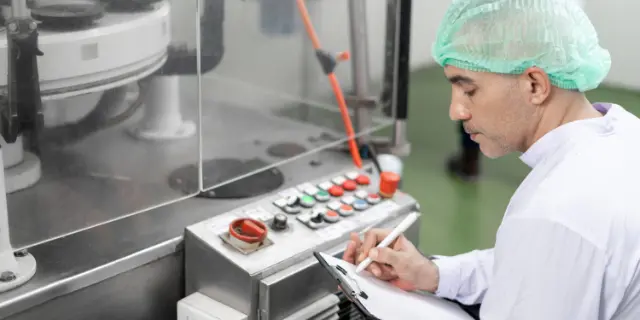Mastering Production Scheduling Automation: Empowering Efficiency in Manufacturing
The manufacturing industry is constantly striving to improve efficiency and accuracy in production scheduling. This complex process involves juggling multiple factors, including raw material availability, order deadlines, and machine capacity. Allocating resources and generating work orders for production personnel can be a daunting task, often leading to delays, errors, and underutilized resources.
Enter the transformative power of Production Scheduling Automation with Python, AI, and cloud-based solutions. By leveraging these technologies, manufacturers can streamline their scheduling processes, empowering them with:
- Enhanced Efficiency: Automated systems can quickly analyze vast amounts of data, optimize schedules, and allocate resources effectively, reducing production time and costs.
- Improved Accuracy: AI-powered algorithms can predict demand, identify potential bottlenecks, and adjust schedules in real-time, minimizing errors and maximizing productivity.
- Seamless Collaboration: Cloud-based platforms facilitate seamless communication and collaboration among production teams, ensuring everyone is on the same page and working towards common goals.

Python, AI, and the Cloud: Orchestrating Production Scheduling Automation
Python: The Powerhouse of Unattended and Attended Bots
Python’s versatility shines in the development of both unattended and attended bots for production scheduling automation.
Unattended Bots: Python scripts can automate repetitive tasks, such as monitoring raw material inventory, analyzing production schedules, and generating work orders. These bots work diligently behind the scenes, freeing up production personnel for more strategic initiatives.
Attended Bots: Python-built attended bots provide real-time assistance to human operators. They can fetch data, populate forms, and even make recommendations, empowering production personnel with the information they need to make informed decisions quickly and accurately.
Cloud Platforms: Supercharging Automation Capabilities
Cloud platforms offer a comprehensive suite of features that elevate automation capabilities far beyond traditional RPA/workflow tools. They provide:
- Scalability: Cloud platforms can seamlessly scale up or down to meet fluctuating automation demands, ensuring optimal performance during peak periods.
- Security: Cloud providers prioritize data security, implementing robust measures to safeguard sensitive production data.
- Integration: Cloud platforms integrate with a wide range of enterprise applications, enabling seamless data exchange and end-to-end automation.
AI: Enhancing Accuracy and Handling Edge Cases
AI algorithms play a crucial role in improving the accuracy and robustness of production scheduling automation. Techniques like:
- Image recognition: AI can analyze images of raw materials or production equipment to identify defects or anomalies, ensuring quality control.
- Natural language processing (NLP): AI can interpret unstructured data, such as customer orders or production notes, to extract relevant information and automate tasks.
- Generative AI: AI can generate realistic data or scenarios to test and improve automation processes, handling even the most complex edge cases.

Building the Production Scheduling Automation with Python and Cloud
Analyzing the Sub-Processes
Production scheduling automation involves several key sub-processes:
- Data collection: Gathering data on raw material availability, order deadlines, and machine capacity.
- Scheduling optimization: Analyzing the data to determine the optimal production schedule.
- Resource allocation: Assigning resources, such as machines and personnel, to production tasks.
- Work order generation: Creating work orders for production personnel.
Automating the Sub-Processes with Python and Cloud
Data Collection:
* Python scripts can extract data from various sources, such as ERP systems, inventory databases, and production logs.
* Cloud platforms provide data storage and management services, ensuring secure and reliable data access.
Scheduling Optimization:
* Python algorithms can analyze data and apply optimization techniques to generate efficient schedules.
* Cloud platforms offer scalable computing resources to handle complex optimization calculations.
Resource Allocation:
* Python scripts can allocate resources based on availability and capacity constraints.
* Cloud platforms facilitate real-time resource monitoring and management.
Work Order Generation:
* Python scripts can generate work orders with detailed instructions for production personnel.
* Cloud platforms provide document management services for secure storage and distribution of work orders.
Data Security and Compliance in Manufacturing
Data security and compliance are paramount in manufacturing. Python and cloud platforms offer robust security measures, including:
- Data encryption
- Access controls
- Audit trails
Python vs. No-Code RPA/Workflow Tools
Python offers several advantages over no-code RPA/workflow tools:
- Flexibility: Python is a versatile language that allows for customization and integration with various systems.
- Scalability: Python scripts can be easily scaled to handle large volumes of data and complex automation tasks.
- Cost-effectiveness: Python is an open-source language, eliminating licensing costs.
Algorythum’s Approach to Production Scheduling Automation
Algorythum takes a unique approach to production scheduling automation, recognizing the limitations of off-the-shelf RPA/workflow tools. Our Python-based solutions provide:
- Tailored Automation: We develop custom automation solutions that cater to the specific needs of each client.
- Performance Optimization: Our Python scripts are designed for efficiency and scalability, ensuring optimal performance.
- Data Security: We prioritize data security and compliance, implementing robust measures to protect sensitive production data.

Production Scheduling Automation: Embracing the Future
The future of production scheduling automation holds exciting possibilities to further enhance the proposed solution. By leveraging emerging technologies, manufacturers can unlock even greater efficiency, accuracy, and productivity.
Integration with IoT: Connecting production equipment to the Internet of Things (IoT) allows for real-time data collection and monitoring. This data can be used to optimize schedules, predict maintenance needs, and improve overall production visibility.
Machine Learning: Machine learning algorithms can analyze historical data and identify patterns to improve scheduling decisions. They can also be used to predict demand, optimize inventory levels, and identify potential bottlenecks.
Digital Twins: Digital twins are virtual representations of physical production systems. They can be used to simulate and test different scheduling scenarios, reducing the risk of disruptions and optimizing production processes.
Stay Connected for More Automation Insights
Subscribe to our newsletter to receive the latest industry-specific automation updates and insights.
Contact Us for a Free Feasibility and Cost Estimate
If you’re interested in exploring how production scheduling automation can transform your manufacturing operations, contact our team today. We offer free feasibility assessments and cost estimates to help you determine the best solution for your unique requirements.

Algorythum – Your Partner in Automations and Beyond
At Algorythum, we specialize in crafting custom RPA solutions with Python, specifically tailored to your industry. We break free from the limitations of off-the-shelf tools, offering:
- A team of Automation & DevSecOps Experts: Deeply experienced in building scalable and efficient automation solutions for various businesses in all industries.
- Reduced Automation Maintenance Costs: Our code is clear, maintainable, and minimizes future upkeep expenses (up to 90% reduction compared to platforms).
- Future-Proof Solutions: You own the code, ensuring flexibility and adaptability as your processes and regulations evolve.









